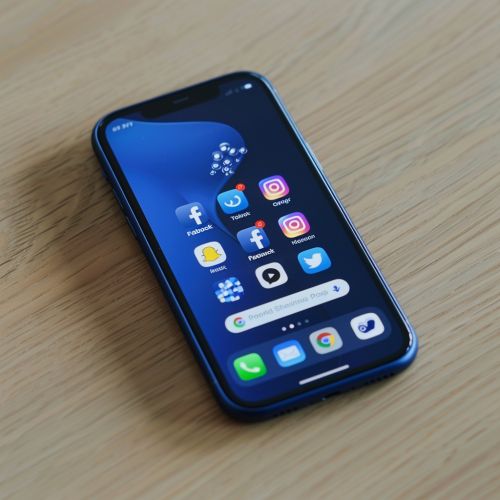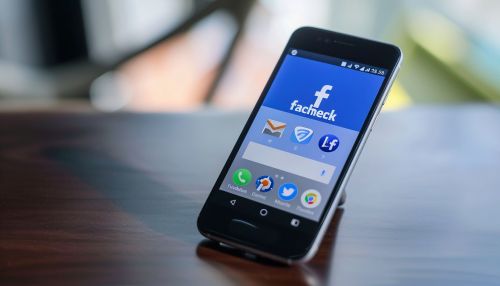Facebook Messenger: Difference between revisions
No edit summary |
No edit summary |
||
| Line 8: | Line 8: | ||
Facebook Messenger offers a wide range of features, including text messaging, voice and video calls, group chats, and the ability to send photos and videos. Users can also send various types of files, share their location, and even send money to other users. The app also supports stickers and emojis, and allows users to play games within the chat window. | Facebook Messenger offers a wide range of features, including text messaging, voice and video calls, group chats, and the ability to send photos and videos. Users can also send various types of files, share their location, and even send money to other users. The app also supports stickers and emojis, and allows users to play games within the chat window. | ||
[[Image:Detail-77835.jpg|thumb|center|A screenshot of the Facebook Messenger app interface on a smartphone.]] | [[Image:Detail-77835.jpg|thumb|center|A screenshot of the Facebook Messenger app interface on a smartphone.|class=only_on_mobile]] | ||
[[Image:Detail-77836.jpg|thumb|center|A screenshot of the Facebook Messenger app interface on a smartphone.|class=only_on_desktop]] | |||
== Functionality == | == Functionality == | ||
Latest revision as of 23:43, 7 May 2024
Overview
Facebook Messenger is a free instant messaging service and software application provided by Facebook. It enables Facebook users to chat, send voice messages, share photos and videos, and even make voice and video calls to their Facebook friends.
History
Facebook Messenger was initially launched as Facebook Chat in 2008. In 2010, the service was redesigned and expanded, and in 2011, it was officially rebranded as Facebook Messenger. The standalone Facebook Messenger app for smartphones was released in 2011, allowing users to use the messaging service without needing to open the full Facebook app.
Features
Facebook Messenger offers a wide range of features, including text messaging, voice and video calls, group chats, and the ability to send photos and videos. Users can also send various types of files, share their location, and even send money to other users. The app also supports stickers and emojis, and allows users to play games within the chat window.


Functionality
Facebook Messenger operates over the internet, using VoIP technology for voice and video calls. The service integrates with the user's Facebook friends list, allowing them to easily find and message their friends. Messages can be sent to individuals or to groups, and the service supports both private and public conversations.
Platform availability
Facebook Messenger is available on a variety of platforms, including iOS, Android, and Windows Phone. It can also be accessed via a web browser on a computer. The service is synchronized across all devices, so users can start a conversation on one device and continue it on another.
Privacy and security
Facebook Messenger uses various measures to ensure the privacy and security of its users' conversations. All messages are encrypted, and users can choose to have their messages disappear after a certain period of time. However, like all online services, it is not completely immune to security threats, and users are advised to be cautious when sharing sensitive information.
Criticisms and controversies
Facebook Messenger has faced various criticisms and controversies over the years. Some users have expressed concerns about the app's privacy practices, and there have been reports of security vulnerabilities. The app has also been criticized for its impact on battery life and for its requirement that users install a separate app to use the messaging service.
